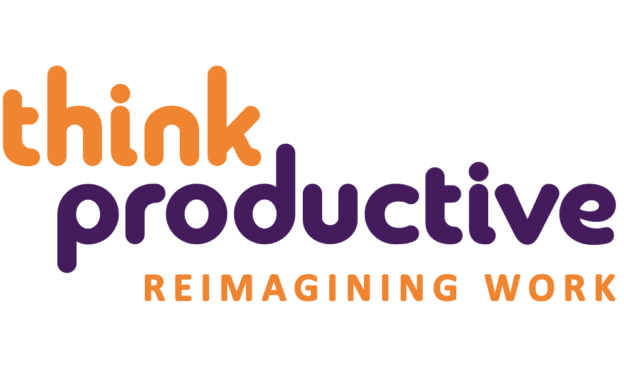How to Improve Your Attention Management
Attention management is a two-part concept — it’s your ability to deliberately dial in your focus when needed, and to choose wisely when deciding which tasks deserve that focus. In today’s fast-paced, ever-changing, technology-driven world, complete and unwavering focus is extremely hard to come by. We often struggle to focus on what they’re reading or watching for extended lengths of time. Here’s how to improve your attention management:
There is Hope!
You can learn to manage your attention better. And you should, because increased attention management means better focus, and better comprehension. Ultimately it means more fruitful results in everything you do. With dedication and drive, you can build up your attention management skills and become a Productivity Ninja who causes others ask, “How do they do it?” Here are five ways how to improve your attention m,anagement:
1.Take Control of Distractions
It’s hard enough to focus on your task even in a quiet, controlled environment. So don’t add to the struggle by surrounding yourself with distractions. For some, music and noise are the big contenders. For others, it’s the temptation to play on their phone or computer. Whatever it is that prevents you from getting down to business, get rid of it.
Now, this doesn’t mean you have to lock your phone away in the company vault. In fact, studies in the USA have shown that being away from one’s phone actually causes many people mental anguish and frustration — the biggest distractions of all.

Instead, allow yourself allotted times for distractions. For instance, maybe each morning at 10:30, you take a 10-minute break to play on your phone, scroll through Facebook or chat with your friend down the hall. Once your scheduled distraction break is over, it’s time to get back to work. As long as you’re consistent with your break-taking routine, getting back to work will actually turn into habit.
2.Forget About Multitasking
Just about every job post today lists “multitasking” as a desirable trait. What employers really want, though, is someone who can get all of their work done, and on time. As modern psychology reveals, you’re more efficient when focused on a single task, as opposed to splitting your focus between several. In fact, psychologist Daniel Goleman deems multitasking nonsensical, as it really only means giving partial attention to two tasks when you’d get more out of focusing fully on one and then the other.
So rather than trying to multitask — or, more accurately, split your focus at the expense of each task you’re trying to complete — prioritize instead. Make a list of the tasks you need to get done, and figure out which one deserves your attention first and foremost.

Once you’ve declared a winner, let go of those other tasks and channel your concentration into the one you’ve prioritized as number one. Yes, you’ve got multiple deadlines. But if you’ve prioritized well, you’ll get all of your projects done, and sooner, if you focus your attention on one piece at a time. Moving away from your multitasking habit can be difficult. Luckily, our Productivity Ninjas can teach you how to do so in one of our Time Management Workshops.
3.Connect With Others
People often feel uncomfortable if you seem too focused on them during a conversation — maintaining unwavering eye contact, for instance. Somehow a well-intentioned gaze can quickly turn into just plain staring. But that doesn’t mean you shouldn’t use some attention management skills to better connect with the people around you, whether they’re colleagues, clients, friends or acquaintances.

Studies have shown that giving the right kind of attention during an interaction increases the listener’s engagement, which in turn adds a deeper level of comfort to the conversation, builds a feeling of trust and allows you to be more persuasive to the listener. To build this great rapport with those you want to connect with, channel your focus into these behaviors during conversation:
- Maintain eye contact, but not in the creepy, unblinking kind of way.
- Really listen to what the other person is saying.
- Notice the other person’s body language — note whether they seem uncomfortable, intrigued or disinterested, and then respond accordingly.
- Subtly mirror the other person’s movements.
Just like any new skill, these actions may feel unnatural at first, but keep at it and you’ll be boosting your professional and personal relationships in no time.
4.Practice
Practicing any mindset actually causes the neural pathways in your brain to reroute over time. With enough practice, you can literally rewire your brain, which, in layman’s terms means you can permanently change bad habits.
Overcoming distractions, flipping your “focus switch” on and off at will, communicating with more deliberate attention — these skills don’t develop overnight. They take some nurturing. So? Practice, practice, practice! When you find yourself struggling to concentrate on a task, give your head a little shake, then say to yourself, “Okay, it’s time to focus.” It may sound silly, but declaring a goal to yourself — whether silently or aloud — actually helps to reinforce those good-habit neural pathways you’re trying to build.
Likewise, when you find your mind wandering during a conversation, take a deliberate blink and reset your attention on the person speaking.
5.Rest Your Brain
With any kind of prolonged mental focus, you’re going to feel worn-out. Reading for two hours straight can sometimes feel as exhausting as running a mile. Use that mental energy wisely, and recognize when it’s time to take a break. When you’ve been working on a particular task or project for one, two, four hours, and you start to feel like your forward progress has plateaued, it’s time for a little break. Grab a drink, pace around the office — do something that physically gets you away from the task and allows your mind to rest.

There are quite a few legitimate reasons to take mini-breaks. As far as productivity goes, it’s very simple — when the mind is in a relaxed state, it can make connections that you may have missed by trying to force continued concentration. The same thing happens on a larger scale, too. So when it’s time to go home for the night and wind down, take full advantage. You’ve been exerting your mind all day, and it needs some time to recuperate. After a good night’s rest, it will be ready for another full day of focus.
6. Use That Awesome Brain of Yours
No matter how much you struggle to focus on a given day, your awesome brain has the potential to learn new, healthy, productive habits. It just needs a little boost from you. So try out a new habit tomorrow, and keep practicing!
What habit will you focus on next? Let us know in the comments below or @thinkproductiveusa
By Lexie Lu
Lexie Lu is a freelance designer and blogger. She enjoys researching the latest trends and always has a cup of coffee in close proximity. She manages Design Roast and can be followed on Twitter @lexieludesigner.
